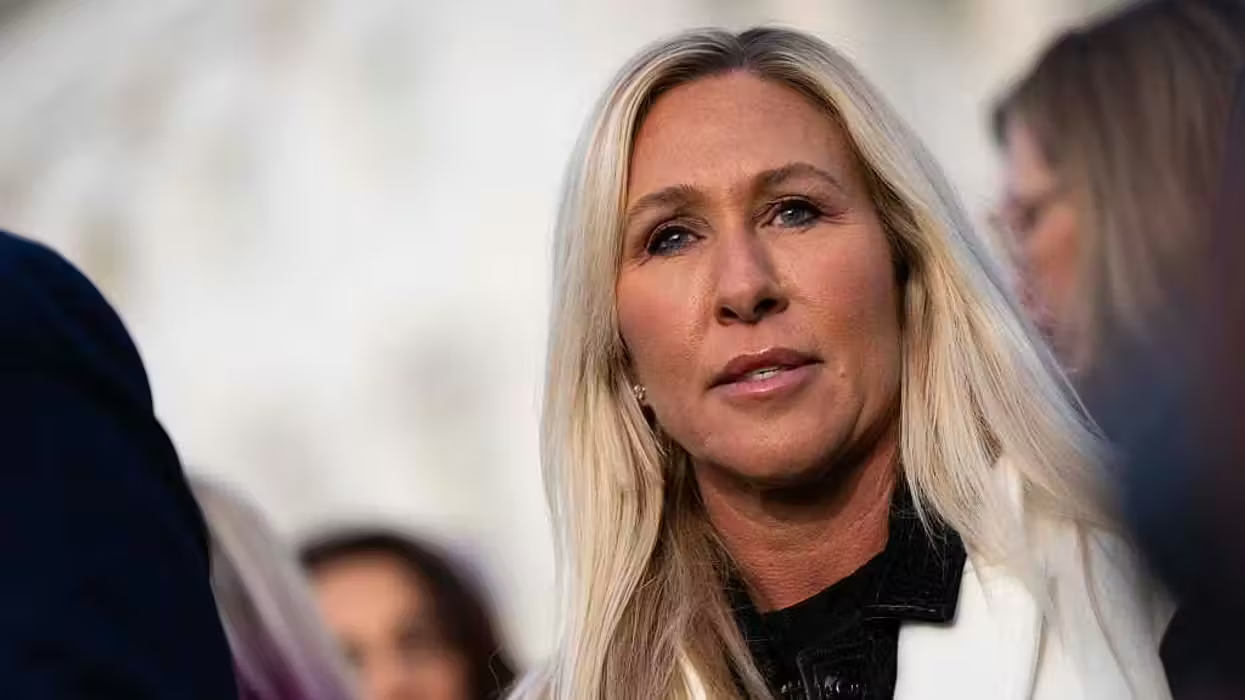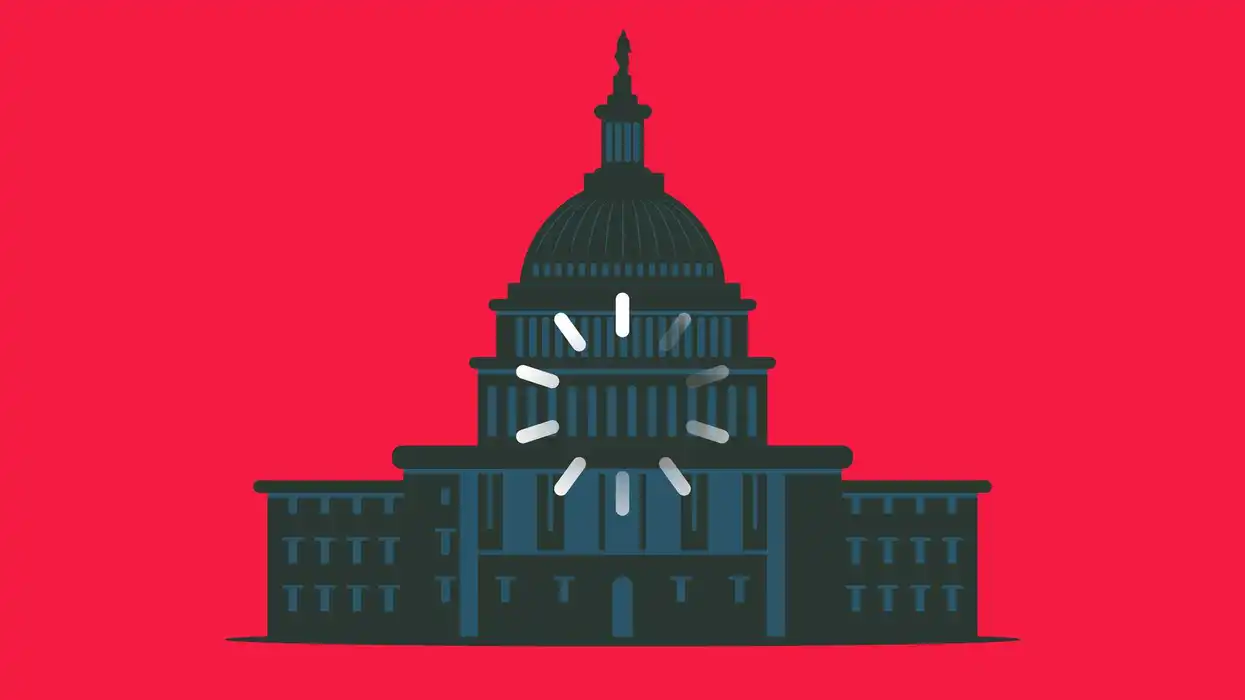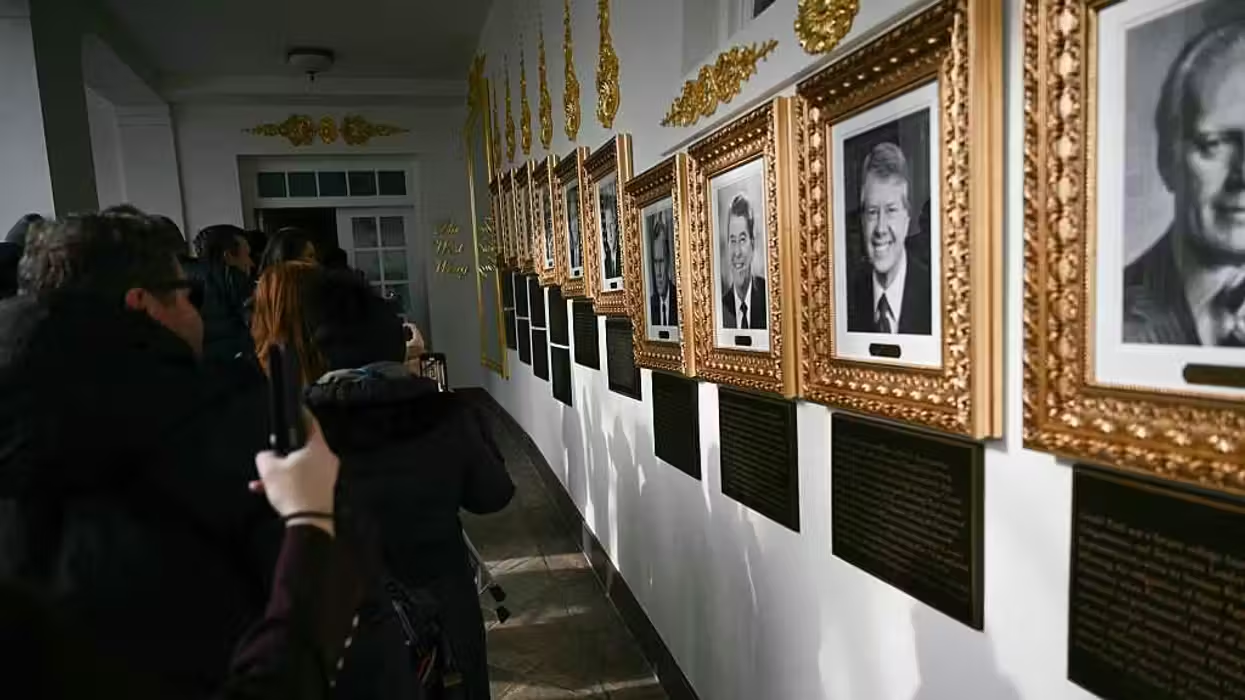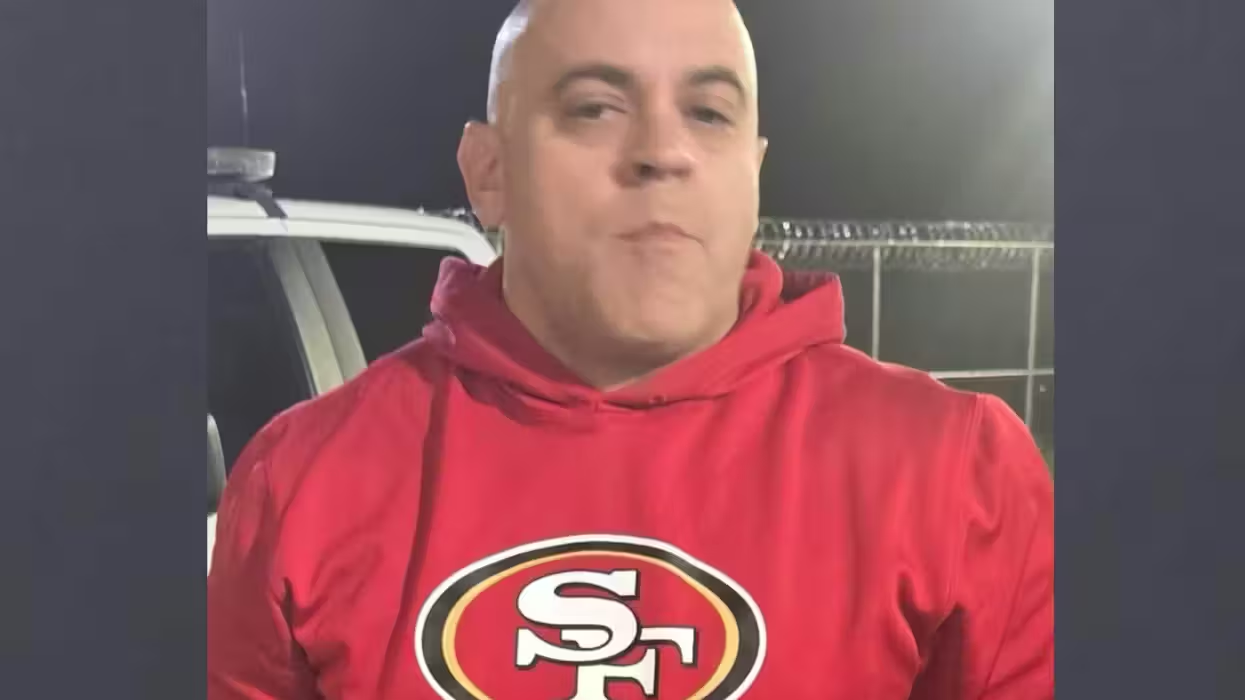
© 2025 Blaze Media LLC. All rights reserved.
Does Think Tank's 'Fakegate' Reveal Agenda to Spread Global Warming Skepticism in Schools?
February 24, 2012
“There are many elementary debates in the science that need to be understood."

- A leak of internal strategy documents from the free market think-tank The Heartland Institute reveals what some believe is an agenda setting out to bring skepticism to climate change data.
- Some of this plan involves a K-12 climate science curriculum that shows conflicting data to that which shows man-made global warming. Heartland sees this presentation as showing both sides of the climate science story.
- "Principals and teachers are heavily biased toward the alarmist perspective." -- Heartland
- Peter Gleick, a climate activist who is the president of the Pacific Institute, admitted to deceitfully obtaining the documents and is now under investigation.
Last week, internal documents of a free market think-tank were leaked. These documents confirmed what some already held about The Heartland Institute: some believed it has a climate denialism agenda; that it was advocating against man-made global warming. But is it really?
Some of the documents, which were later admitted to have been taken under a false identity by Peter Gleick of the Pacific Institute, hold a plan for climate science education in schools. Many have taken this as proof that Heartland was planning to spread climate denialism in schools.
Brad Plumer, in a post on Ezra Klein's Wonkblog for the Washington Post, wrote that Heartland's"skeptical teachings [...] could find plenty of fertile soil" in America's educational atmosphere with the National Science Teachers Association finding in 2011 that 54 percent of teachers said they had parents who presented them with a questioning view of man-made global warming. He also reports one teacher from California saying “I teach that we are always evaluating and learning. Nothing is in stone... I teach both sides.”
Teaching both sides is exactly what The Heartland Institute has said it is doing. In the New York Times' Green blog, David Wojick, who consults for the Department of Energy and helped create the K-12 climate science curriculum, is reported as saying:
“My research field is the logic of complex issues and I have studied the climate debate for 20 years,” Dr. Wojick, who has a doctorate in the philosophy of science, wrote in the e-mail. “There are many elementary debates in the science that need to be understood. Of course if you do not believe this then we have nothing to discuss.”Asked to specify what those points of debate are, Dr. Wojick wrote at length:
“Regarding the warming issue, it is scientifically fascinating. There are 5 different systems for estimating global temperatures, with a 6th in development. The problem is that these systems contradict one another. While all show some warming it occurs in different amounts and most importantly at very different times. Science needs something specific to explain but we just do not have that with warming. For example, HadCRU, UAH and RSS show no warming for the last 10-15 years, while GISS and BEST show steady warming,” he said, referring to the systems.
“So has it warmed or not, we do not know. It is a grand challenge. This is scientifically fascinating and should be taught,” he concluded.
It's this conundrum -- conflicting data -- that lead Wojick to help Heartland with the curriculum. Many mainstream climate experts hold that the data available shows without a doubt that the Earth is warming and that human activity has contributed to it. For example, the Times reports Gavin Schmidt, a climate scientist with Goddard Institute for Space Studies, as saying the curriculum was "using details to obscure" the science and that Wojick was being "blind" to the data.
The Heartland Institute's president Joseph Bast has confirmed that all the documents released are authentic, except for a memo that he was was forged. Gleick has denied altering any of the documents in the leak that he called "a serious lapse in his judgement and ethics."
Reuters reports that Gleick is now being investigated by the Pacific Institute, a climate research organization of which he is the founder and president:
The Oakland-based institute revealed its inquiry into the widening controversy in a terse statement posted on Wednesday on its website, hours after the San Francisco Chronicle said it was discontinuing an online blog that Gleick had been writing for the newspaper."The Board of Directors of the Pacific Institute is deeply concerned and is actively reviewing information about the recent events involving its president ... and documents pertaining to the Heartland Institute," the board statement said.
Here is what Heartland's internal document (via DeSmogBlog, one of the first blogs to publish the leaked documents) said about the curriculum:
Heartland has tried to make material available to teachers, but has had only limited success. Principals and teachers are heavily biased toward the alarmist perspective. Moreover, material for classroom use must be carefully written to meet curriculum guidelines, and the amount of time teachers have for supplemental material is steadily shrinking due to the spread of standardized tests in K-12 education.[...]
Dr. Wojick proposes to begin work on “modules” for grades 10-12 on climate change (“whether humans are changing the climate is a major scientific controversy”), climate models (“models are used to explore various hypotheses about how climate works. Their reliability is controversial”), and air pollution (“whether CO2 is a pollutant is controversial. It is the global food supply and natural emissions are 20 times higher than human emissions”).
In what it is calling "Fakegate" -- actually coined by the Telegraph columnist James Delingpole -- Heartland has also noted that Gleick was removed by the ethics task force of the American Geophysical Union and resigned from the National Center for Science Education.
In addition to strategy documents, Gleick was able to obtain fundraising and budget information about the Institute by posing as someone else to a Heartland employee who turned over the information. Gleick has said his “judgement was blinded by his frustration” over the attack on climate science.
Want to leave a tip?
We answer to you. Help keep our content free of advertisers and big tech censorship by leaving a tip today.
Want to join the conversation?
Already a subscriber?
more stories
Sign up for the Blaze newsletter
By signing up, you agree to our Privacy Policy and Terms of Use, and agree to receive content that may sometimes include advertisements. You may opt out at any time.
Related Content
© 2025 Blaze Media LLC. All rights reserved.
Get the stories that matter most delivered directly to your inbox.
By signing up, you agree to our Privacy Policy and Terms of Use, and agree to receive content that may sometimes include advertisements. You may opt out at any time.






